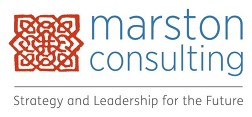
The second week of the Newton Lecture Series already stood as a testament to how diverse the speakers of this semester will be. Ama Marston, a graduate of both UC Santa Cruz and Columbia University, stood before her audience and presented her innovation—Transformative Resilience—which she features in her upcoming book.
Marston, of Marston Consulting, characterized herself as a global strategy and leadership expert. She has worked with significant figures like Mary Robinson (first female president of Ireland), Joseph Stiglitz, Nobel Laureate economist and collaborated with FTSE and Fortune 500 companies, the UN, as well as various NGOs and community organizations across the globe for the last two decades.
Ama Marston revealed herself to be a fan of Rock & Roll when she brought up the example of Patti Smith. Smith was asked to perform at the Nobel Prize Ceremony in Sweden, but upon entering the stage, found she was “struck with such a plethora of emotions that she was unable to negotiate them.” In essence, Smith choked, but to her surprise, her audience clapped and showed tremendous support. Marston wanted her audience to learn from this example, because it is not only our ability to bounce back, but to spring forward and overcome, that defines us.
 Marston started her career working for nonprofits, and revealed having worked with both the world’s poorest people, and the most powerful. She had a vast range of experiences in different countries, but finally settled in the UK, meaning that Marston needed a permit to stay in the country. Shortly after starting her own business, UK work permit requirements changed considerably adding additional pressure. Marston was also juggling several large consulting projects on tight time-lines, addressing some of the world’s most complex challenges, when her father suffered a debilitating accident in Thailand. Ama dropped her work immediately to go be by her father’s side. Marston admitted to feeling the weight of the world on her shoulders, and realized she had to both trust that things would change for the better, but also work proactively to evaluate what she had to do differently.
Marston started her career working for nonprofits, and revealed having worked with both the world’s poorest people, and the most powerful. She had a vast range of experiences in different countries, but finally settled in the UK, meaning that Marston needed a permit to stay in the country. Shortly after starting her own business, UK work permit requirements changed considerably adding additional pressure. Marston was also juggling several large consulting projects on tight time-lines, addressing some of the world’s most complex challenges, when her father suffered a debilitating accident in Thailand. Ama dropped her work immediately to go be by her father’s side. Marston admitted to feeling the weight of the world on her shoulders, and realized she had to both trust that things would change for the better, but also work proactively to evaluate what she had to do differently.
Her entire outlook changed. Marston understood that she had to build up her own skills, strengths, and resilience. These efforts are most evident in Marston Consulting, her firm that works to create inclusive and resilient economies, individuals, and businesses. Through leadership development, strategy, and analysis, Marston helps her clients prioritize and actualize their goals. Despite the many layers of stress that companies and their working parts endure, Marston believes they can overcome adversity through her applied practice of Transformative Resilience.
Transformative Resilience, according to Marston, is a mentality as well as a strategy. Through data she introduced from the Universities of Chicago and London, Marston showed evidence that growth and progress actually increase after trauma. Similarly, she applied concepts of Continual Learning to illustrate that our brain chemistry allows us to adapt to changing circumstances, making us more adept to deal with stress, risk, and failure.
The leadership expert also brought up notions of Control, and how this affects our perception of competence and influence in the working world. She advised her audience to find the right balance, to reframe challenges and accept less control for a greater degree of collaboration. Marston then spoke of Frederick Hutson, a businessman who transformed a brief stint in prison into a self-taught MBA and cultivated a number of important resilience skills, which would later serve him in business. During his time there, Hutson discovered the need for greater access and communication to the outside world and with the families of his fellow inmates. He realized that those who kept in touch with loved ones, more often than not, didn’t return to prison after having been released. With this idea, Hutson secured $3 million in tech startup funding, and his company is now in the gross stages of development. And despite an even greater setback, where fraudulent activity cost the company hundreds of thousands of dollars in false phone bills, Hutson’s team of engineers worked proactively and collaboratively, with the guidance of other companies, to ensure their safety and efficiency. Now, Hutson’s company is experiencing an increase in growth because they are internationally known for being high quality and reliable.
Marston example again showed the importance of Transformative Resilience in instances of crisis. In every field, beyond the scope of entrepreneurialism, we will encounter turbulence. But applying Transformative Resilience can help us, in the words of Marston, “Weather storms as entrepreneurs, address inequality, structural problems, and global challenges.”
Ama Marston left her audience with an optimistic quote from Michelle Obama. “History has shown us that courage can be contagious and hope can take on a life of its own.”
